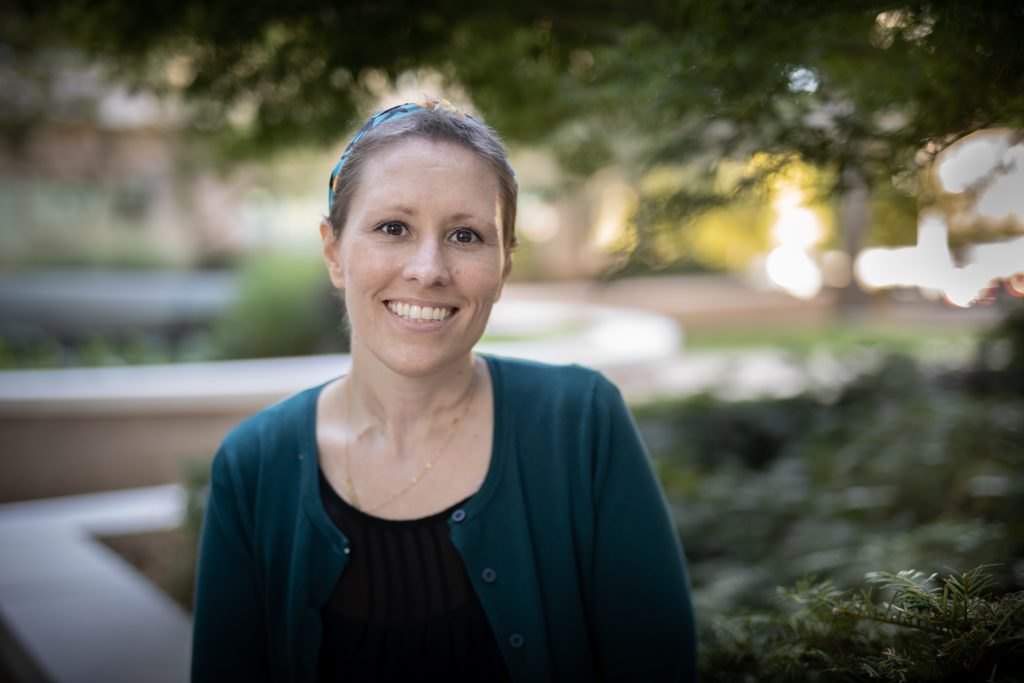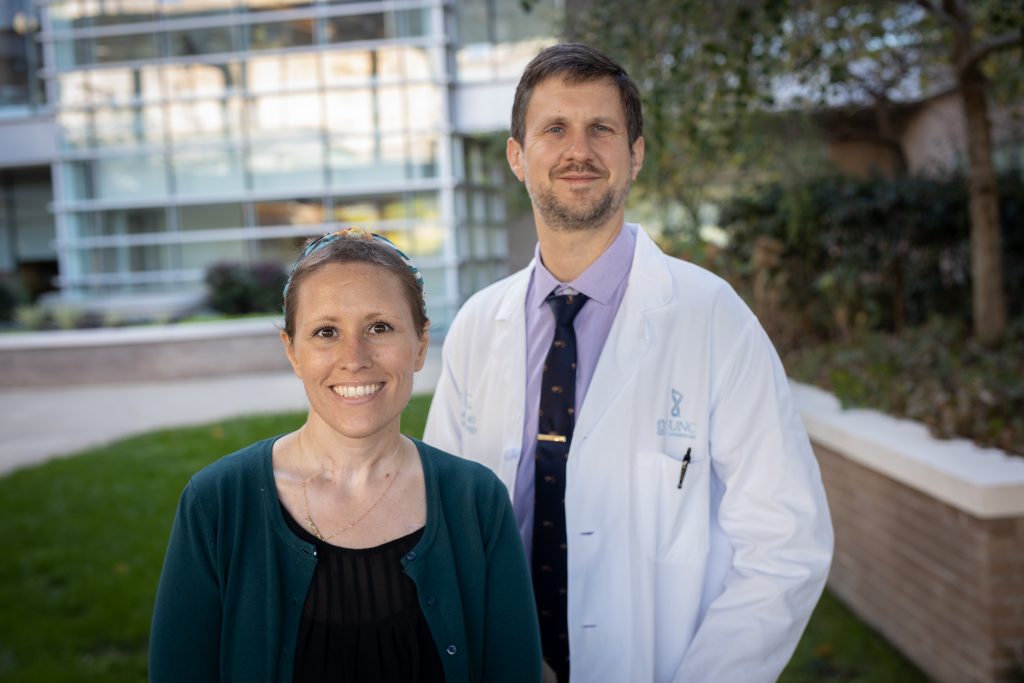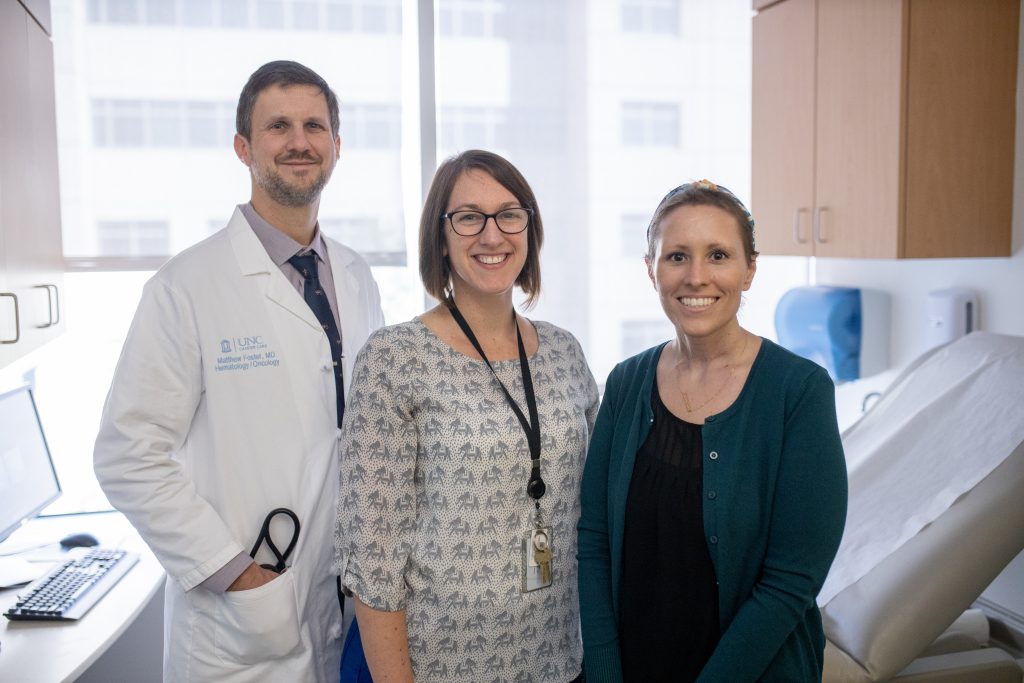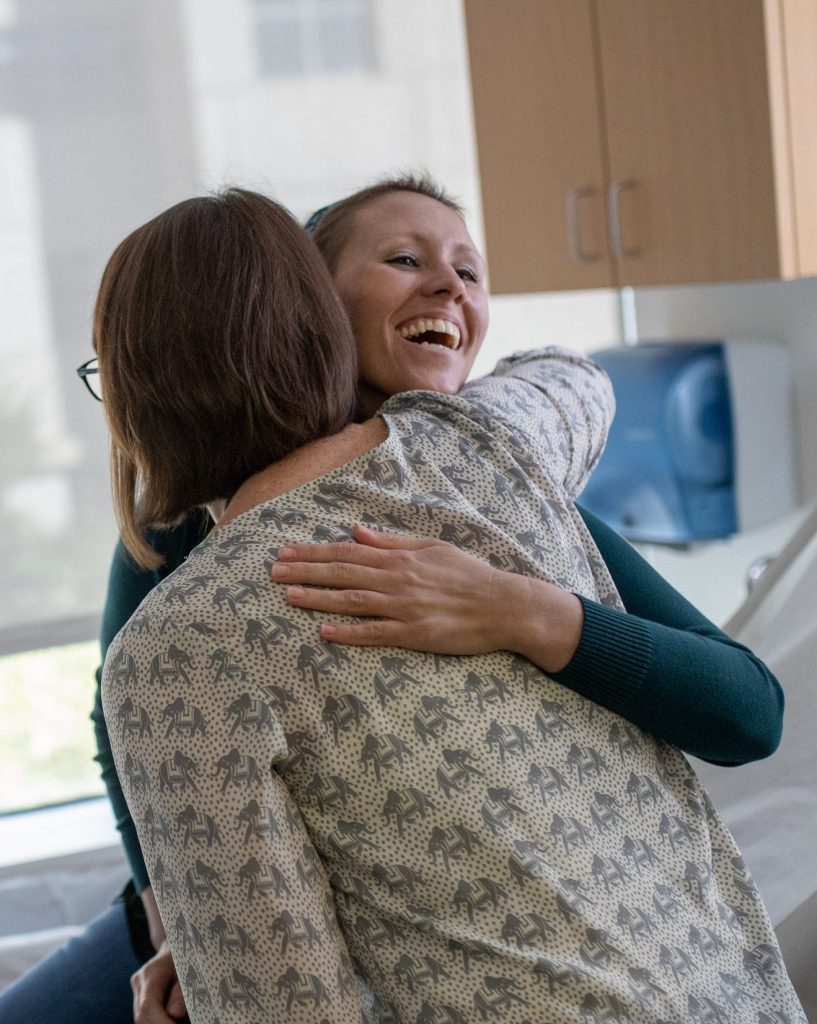After two cancer diagnoses and multiple rounds of treatment, Lauren Gift’s cancer journey inspired her to help others navigate cancer treatment.
The 34-year-old had been through treatment, side effects and uncertainty first following a diagnosis with thyroid cancer in 2010, and six years later, with an aggressive form of leukemia.

While still finishing treatment for acute lymphoblastic leukemia, she left her career in marketing, sold her home, and enrolled in a virtual master’s degree program in social work at the University of Southern California.
Her goal was to work in a hospital or health care setting to help young cancer patients and survivors. Lauren is someone who has a heart that “beats for others,” her sister, Megan Gift, said.
“I want to help others and be a part of their (cancer) journey,” Lauren Gift said.
When the leukemia returned in the midst of her studies, Gift’s oncologist in Charlotte recommended a clinical trial for an experimental form of immunotherapy at the North Carolina Cancer Hospital.
The trial was for an innovative form of treatment called CAR-T immunotherapy, or chimeric antigen receptor T-cell therapy, which harnesses a patient’s own immune system to fight cancer. Her doctor told her the experimental treatment offered the potential for lower side effects and a better quality of life.
“She believed I had a fighting chance, and that was with CAR-T,” Gift said. “I knew that was my decision … (she) didn’t even have to tell me the rest.”
A groundbreaking cancer therapy
UNC Lineberger is one of a few select cancer centers in the country that aims to develop new forms of CAR-T immunotherapies.

In this form of treatment, scientists insert a gene into T-cells, a type of white blood cell and a component of the immune system. The gene creates a marker on the T-cells that increases their ability to recognize and kill cancerous cells, as cancer can be “hidden” from the immune system.
UNC Lineberger researchers currently are conducting a Phase 1 clinical study of a CAR-T immunotherapy for B-cell acute lymphoblastic leukemia patients whose cancer has a CD19 cellular marker.
They designed the therapy to include a “safety switch,” allowing them to turn off the treatment in case of severe side effects. The clinical trial is evaluating the safety of the therapy and the safety switch.
The trial has made CAR-T immunotherapy available to patients with Gift’s type of leukemia who are older than 25 years of age, said UNC Lineberger’s Matthew Foster, MD, associate professor in the UNC School of Medicine Division of Hematology/Oncology.
“What UNC Lineberger has developed, and is studying in clinical trials, will answer the question: Can adults tolerate this better?” Foster said. “Having another safety tool in the kit is one avenue to make it more safe and feasible for adults.”
‘Day and night’
Gift had her blood drawn and taken to UNC’s Advanced Cellular Therapeutics facility for her T-cells to be separated and genetically engineered to fight her cancer. She received chemotherapy in Charlotte to prepare for the CAR-T treatment, and then was flown to the N.C. Cancer Hospital.

The treatment experience with CAR-T was “day and night” compared with her previous treatment experience, which had included chemotherapy, full body radiation and an allogenic stem cell transplant.
Her sister, Megan, had been her transplant donor. She flew in from Florida to be with Lauren during the transplant process.
“She’s strong, she’s optimistic, and she’s a fighter,” Megan said of her sister.
The treatment and transplant initially put the cancer into remission, but Lauren said it was a “long healing journey.”
“If CAR-T had been available to me three years ago to get into remission, a thousand times I would have done that,” she said. “If this can help someone else, it’s totally worth it.”
CAR-T treatment put her into remission from leukemia for the second time, and she was able to return to school.
Gift is grateful to Foster and the rest of her care team, whom she said were tremendous.
 While at the UNC Medical Center, Gift also developed a relationship with Lauren Lux, LCSW, director of UNC Lineberger’s adolescent and young adult cancer program. She felt Lux and the rest of the team cared for her as a whole patient.
While at the UNC Medical Center, Gift also developed a relationship with Lauren Lux, LCSW, director of UNC Lineberger’s adolescent and young adult cancer program. She felt Lux and the rest of the team cared for her as a whole patient.
Lux works with teenagers and young adults ages 13 to 40 to provide emotional and psychological support, and programs for teens and young adults in the cancer hospital.
“What I liked about UNC was that they really consider your mental health, and really wanted to make sure I was OK … . They wanted to make sure I wasn’t feeling isolated or losing my mind sitting in a hospital room,” Gift said.
She hopes to help others in a similar way. Test results in late December, 2019, showed there were signs her cancer had returned. She resumed additional treatment to prepare for a second transplant.
Foster said researchers are working to launch a second phase of the trial to evaluate the efficacy of the investigational treatment for patients in clearing the disease and keeping it away. In addition, UNC is participating in multi-institution studies to evaluate how best to incorporate CAR-T therapy into treatment, and to compare it to other treatment types.
“For this trial, we wanted to evaluate whether we can help make someone feel better in the case that they got severe toxicity from treatment. I hope we’re able to make someone feel better,” he said. “For CAR-T in ALL, there are ongoing studies to find out how best to incorporate CAR-T cells earlier into someone’s treatment, and to compare it versus other interventions.”
Learn more about the CAR-T Immunotherapy Program at UNC Lineberger
